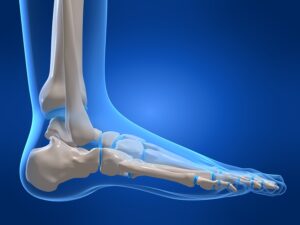How to Treat Bursitis
Bursitis is a painful condition that often occurs in older adults. It affects the small, fluid-filled sacs — called bursae — that cushion the bones, tendons, and muscles near the joints. When the bursae become inflamed, it is called bursitis. The most common locations for bursitis are in the hip, shoulder, and elbow. But people can also have bursitis by the knee, heel, and the base of the big toe. Bursitis tends to occur near joints that perform frequent repetitive motion. You might look at having an in-home care provider come to the home during flare-ups if there are tasks that your parent is unable to do.

In-Home Care Union County NJ – How to Treat Bursitis
If your parent has bursitis, she will probably complain about feeling achy or stiff in those areas. It might be inflamed and hurt more when pressed on or moved. The good news is that bursitis pain usually goes away within a few weeks with proper treatment, but recurrent flare-ups of bursitis are common, so knowing how to best help your parent when it does flare up will make it easier for her to recover quickly after a flare up.
Here are some common techniques you can help your parent do to reduce inflammation. An in-home care provider can help with housework or meal prep, along with a myriad of other tasks.
Depending upon where your parent’s bursitis is located on her body, you might consider having her take the following actions to try to eliminate flare-ups or manage them when they do occur.
- Warm up and stretch before strenuous activities to protect the joints from injury.
- If your parent has an activity that she enjoys but sometimes causes her pain, warming up will help her body be ready for the activity.
- Lift properly.
- Knowing how to lift a heavy box is important in protecting herself from a bad flare-up. Your parent should bend her knees whenever she lifts something. Failing to do so puts extra stress on the bursae to her hips. She also needs to learn when to not lift something too heavy and to ask for help. If the laundry basket is too heavy when filled with towels, an in-home care provider or family member can assist in carrying that basket upstairs.
- Use kneeling pads. Have your parent use some type of padding to reduce the pressure on her knees if her hobby requires a lot of kneeling. For gardeners, this is a must and kneeling pads can be purchased at almost all gardening stores.
- Wheel heavy loads. Carrying heavy loads puts stress on the bursae in the shoulders. If your parent has access, she should use a dolly or a wheeled cart instead when she has heavy loads.
- Take frequent breaks. It can help reduce inflammation if she alternates repetitive tasks with rest or other activities.
- Maintain a healthy weight. Being overweight places more stress on the joints.
- Exercise. Strengthening those surrounding muscles can help protect the affected joint.
Using these techniques even when there are no flare-ups will help reduce the rate of flare-ups as well as shorten their duration.
If you or an aging loved one are considering hiring professional In-Home Care Services in Union County NJ, please talk to the caring staff at Generations Home Health Care today. Providing Home Care in Somerset, Essex, Union, Morris, and Hunterdon Counties. Call us today at (908) 290-0691 or (973) 241-4534.
- Reliable, Cheerful, and Professional Care—Even on My Schedule - April 24, 2025
- How Can Seniors Break Free from Hoarding Behaviors? - April 23, 2025
- Meet the Generations Home Healthcare Team! - April 22, 2025


